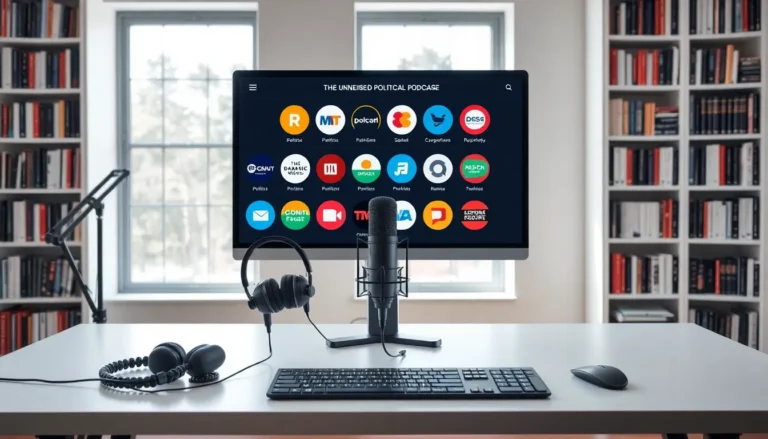Ever received a call from a debt collector and thought, “Here we go again.”? It’s like that unwelcome friend who keeps showing up at the party uninvited. But fear not. As daunting as it may feel, understanding the ins and outs of debt collection can turn those festering nerves into empowering knowledge. In this deep dive, we’ll explore Titan Solutions Group, their role in the debt collection world, and how you can navigate this tricky terrain like a pro. Let’s unravel the mystery behind debt collection services and give yourself the upper hand.
Table of Contents
ToggleUnderstanding Debt Collection Services

What Is a Debt Collector?
A debt collector is an individual or a company that pursues payments of debts owed by individuals or businesses. Their main goal? To collect overdue payments for creditors. This can involve phone calls, letters, or even legal action. Sounds intense, right? But for many, this is just another day at the office.
The Role of Titan Solutions Group
Enter Titan Solutions Group. Known for its reputation in the debt collection industry, this company specializes in helping businesses recover what they are owed while adhering to ethical practices. They act as a bridge between creditors looking to reclaim their money and debtors feeling overwhelmed by their financial obligations. Titan Solutions not only aims for collection but does so with an awareness of the sensitive nature of debt. They explore payment arrangements that are feasible for those in debt, providing solutions that are not just effective but humane.
How Debt Collection Works
The Process of Debt Collection
The journey begins when a debt becomes overdue. Creditors, after attempting to collect themselves, might hand the debt to a collection agency like Titan Solutions Group. The process typically involves sending out notices to the debtor, followed by phone calls if the debt remains unpaid. If these efforts fail, things could escalate to legal proceedings, but that’s often a last resort.
Legal Regulations for Debt Collectors
It’s essential to understand that debt collectors aren’t just wild west cowboys. There are legal regulations in place to protect consumers. The Fair Debt Collection Practices Act (FDCPA) outlines what debt collectors can and cannot do. For instance, they cannot harass you or use deceptive practices to collect a debt. Familiarizing yourself with these regulations is paramount to safeguard your rights.
Best Practices in Debt Collection
Tips for Consumers Facing Debt Collection
Finding yourself facing a debt collector can feel like being stuck in a horror movie. To survive, it’s crucial to stay calm and informed. Here are a few tips:
- Educate Yourself: Know your rights under the FDCPA. Knowing the law makes you less of a target for manipulation.
- Keep Records: Document every communication. This can be vital for any potential disputes.
- Understand Your Debt: Clarify the details about the debt being collected. If you weren’t aware or disagree with the amount, don’t shy away from speaking up.
How to Handle Communication with Debt Collectors
Communication can be daunting, but it doesn’t have to be. Approach it with composure. When communicating:
- Stay Professional: Keep emotions in check. Respond calmly to inquiries.
- Be Cautious with Personal Information: Only provide necessary details. Verify the identity of the collector before discussing specifics.
- Negotiate When Possible: If the debt is legitimate, see if you can work out a modified payment plan that suits your situation. Sometimes, they will agree to a reduced amount if paid promptly.
Disputing a Debt with Titan Solutions Group
Steps to Dispute a Debt
If you believe a debt is incorrect or invalid, you have the right to dispute it. Here’s how:
- Write a Dispute Letter: Clearly state your disagreement and include relevant evidence.
- Send It Promptly: Make sure to send your dispute within 30 days of receiving the initial collection notice.
- Keep Copies: Maintain a copy of your correspondence for your records.
Your Rights Under the Fair Debt Collection Practices Act (FDCPA)
The FDCPA grants you several rights when dealing with debt collectors:
- Right to Dispute: You have the ability to dispute the debt and request validation.
- Right to Stop Communication: You can ask the collector to cease contact, although this doesn’t erase the debt.
- Protection Against Harassment: You cannot be subjected to threats or harassment. If it occurs, document it and report it.





